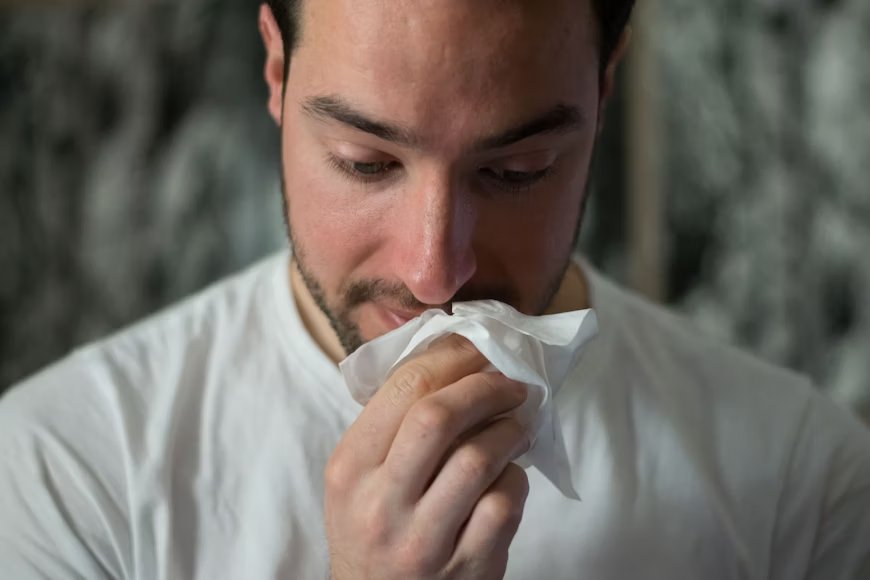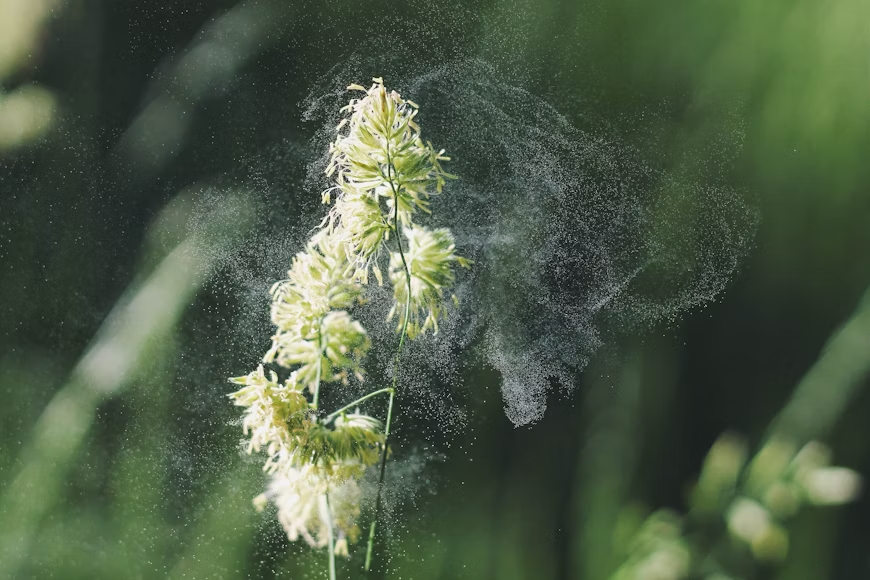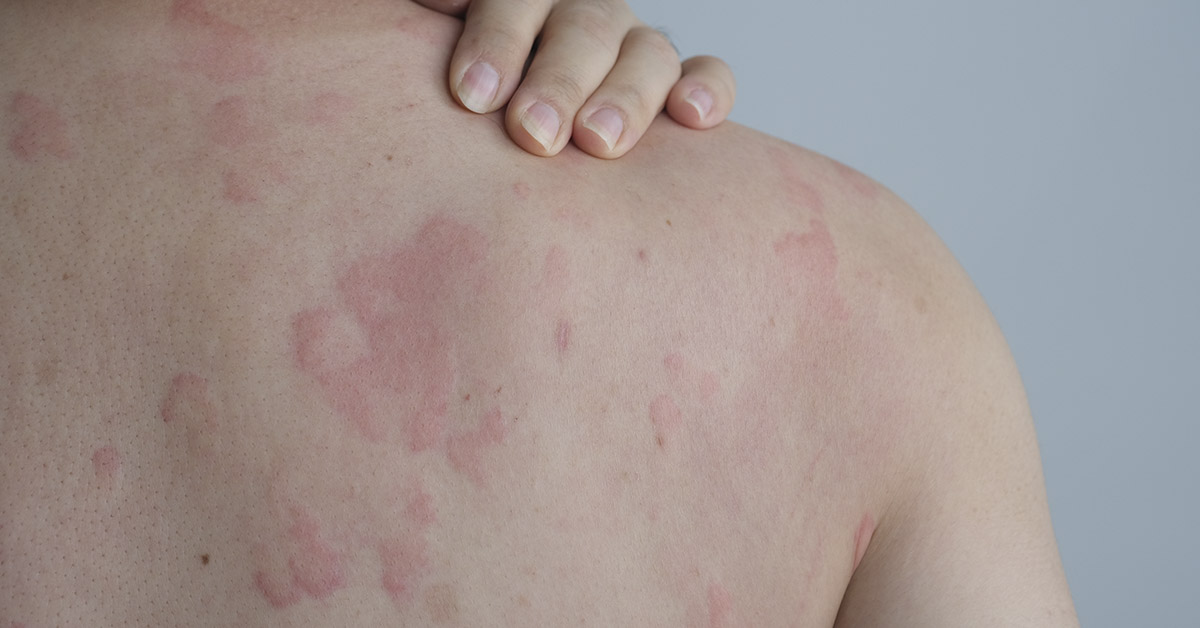Ever break out in itchy red welts for no reason? You’re not alone. While common allergens get most of the blame, uncommon causes of hives often go unnoticed. Triggers like stress, sunlight, or even pressure can confuse both patients and doctors. If you’ve ever asked, “Why do I get hives out of nowhere?” this slideshow might offer the answer. We’ll explore eight surprising causes, look at more familiar ones, and share tips on how to manage symptoms effectively.
Stress and Anxiety

Stress doesn’t just affect your emotions, it can appear on your skin. When you’re anxious, your body releases histamine, which can lead to hives. These flare-ups often strike during tense moments like deadlines or emotional events. Deep breathing, meditation, or short walks may help reduce the symptoms. If stress-related hives keep coming back, your doctor may suggest therapy, antihistamines, or both.
Pressure on Skin

Physical pressure is one of the uncommon causes of hives most people overlook. Tight waistbands, bra straps, or even long hours in a chair can trigger a skin reaction. Known as pressure urticaria, this type develops slowly and can last all day. Adjusting your clothing and posture helps, as does using soft padding. If symptoms continue, a dermatologist can provide more targeted solutions and help confirm the diagnosis.
Temperature Shifts

Sudden temperature changes are a sneaky trigger. Heat urticaria appears after hot showers, workouts, or hot weather. Cold urticaria can show up after swimming, drinking icy beverages, or walking in cold air. These non-allergic hives triggers don’t involve allergens, which makes them harder to identify. Dress in layers and avoid abrupt shifts in temperature. If symptoms persist, consult a doctor about medications like antihistamines or epinephrine.
Read More: 8 Autoimmune Symptoms You Could Be Overlooking
Sunlight

Sunlight can cause a rare reaction called solar urticaria. Within minutes of UV exposure, you may see burning, itchy welts. These hives fade after you leave the sun but can return quickly with more exposure. While this is one of the more uncommon causes of hives, it’s still important to protect your skin. Use high-SPF sunscreen, wear protective clothing, and avoid peak UV hours. A dermatologist can run tests to confirm your sensitivity.
Vibration

Vibration isn’t just annoying, it can also cause hives. Using power tools, mowing the lawn, or even clapping hands may lead to welts. This condition, known as vibratory urticaria, often runs in families. Though rare, it’s one of the uncommon causes of hives that surprises many people. Use padded gloves, limit exposure, and speak to a specialist if this sounds familiar. Antihistamines may offer some relief.
Water Exposure

It sounds impossible, but water itself can cause a reaction. Aquagenic urticaria leads to hives after bathing, swimming, or sweating. Though extremely rare, it’s another example of non-allergic hives triggers that confuse many. The skin reacts within minutes, producing small, itchy welts. Barrier creams, shorter showers, and medical advice can help manage this unusual condition. If this happens to you, consult a dermatologist.
Read More: Itchy Red Spots on Your Skin? Don’t Ignore This Common but Misunderstood Condition
Hormonal Shifts

Hormonal changes can cause skin issues, hives included. Many people see patterns tied to menstrual cycles, pregnancy, or menopause. These reactions can come and go monthly. You might have asked, “Can stress or hormones cause hives?” The answer is yes. Keep a journal to spot patterns, and speak with a doctor about treatment options. Hormonal therapy or antihistamines may help manage flare-ups effectively.
Infections

Infections are another lesser-known cause. Viral infections like colds or flu often lead to temporary hives. Bacterial or fungal infections may trigger a similar response. These outbreaks occur because your immune system becomes hyperactive. If you’re sick and your skin reacts, this could be why. Again, uncommon causes of hives are often hidden behind more obvious symptoms. Treat the infection, and the hives usually clear up too.
More Common Hives Triggers

While rare triggers exist, most hives come from familiar sources. Common culprits include food allergies, medications, insect bites, pollen, and pet dander. Fragrances and cleaning products are also typical irritants. If your hives appear suddenly, consider what you’ve eaten, touched, or been exposed to. Journaling can help. Allergy tests may pinpoint your specific triggers and lead to better prevention.
How to Treat and Prevent Hives

Hives are treatable, even when you don’t know the cause. Start with over-the-counter antihistamines. Cool compresses, loose clothing, and gentle skincare can also help. For chronic cases, doctors may prescribe stronger meds or allergy shots. If your hives last longer than six weeks or recur often, speak with a doctor. They may diagnose chronic idiopathic urticaria and offer long-term solutions.
Know Your Triggers, Reclaim Your Comfort

Uncommon causes of hives can make daily life frustrating. But once you understand your triggers, you can start managing them. Whether it’s sunlight, stress, hormones, or infections, your skin is giving you clues. Don’t ignore the signs. With symptom tracking, expert guidance, and a few changes, you can control hives before they control you.
Disclaimer: This information is not intended to be a substitute for professional medical advice, diagnosis or treatment and is for information only. Always seek the advice of your physician or another qualified health provider with any questions about your medical condition and/or current medication. Do not disregard professional medical advice or delay seeking advice or treatment because of something you have read here.
Read More: 9 Possible Causes of Scalp Bumps (And When to Worry)

